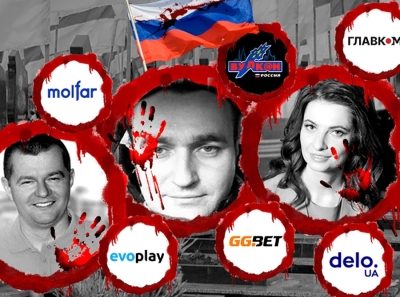Hamas and Israel: how big will this war get?
Hamas’ attacks on Israel continue, with more than 900 Israelis killed since Saturday. Israel is retaliating by bombing Gaza and has also been shelling targets in southern Lebanon, in what it says is a response to attacks by the Shiite Hezbollah militia. Casualties on the Palestinian side number around 680 people so far. Commentators fear for the stability of the entire region.
A watershed moment
Le Figaro sees the dawn of a new era in the Middle East:
“This is probably the end of the Palestinian Authority in its current form which, nineteen years after the election of Mahmoud Abbas, has become mired in illegitimacy and corruption. It is also the last gasp of the ‘two-state solution’, a chimera to which the Israelis, strengthened in their conviction that they face a mortal enemy, will close their minds even more firmly than before. The process of normalising relations with Israel’s Arab neighbours could also be terminated, as collateral damage. Even Israeli democracy, already undermined by the right-wing religious coalition government, could end up in the graveyard of illusions.”
Grim outlook for the Middle East
The Frankfurter Rundschau fears that the war will spread:
“This could prompt an uprising of Palestinians in the West Bank, for example. Iran could use its powerful influence in Lebanon, Iraq and Syria to get these countries to join forces with Hamas in the fight against Israel. And the autocrat Vladimir Putin could use his close ties with the Syrian Assad regime and add fuel to the flames because he never misses an opportunity to stir up any conflict that weakens the West and distracts from the war in Ukraine.”
It’s up to Riyadh
Hamas doesn’t have the potential to continue on its own, Trud notes:
“Hamas is part of a bloc, one could even describe it as an instrument in the hands of Iran or Russia, fighting for their political and economic interests in the Middle East, with Israel and Saudi Arabia on the other side. ... Hamas cannot continue fighting like this for much longer. ... The key position now is that of Saudi Arabia. Will it hook up with the Iranian-Russian side or continue to act in its own interest, as it has done so far, building on its relations with China, India and so on? ... Much depends on Riyadh.”
All set for a confrontation with Tehran?
Visão fears that Israel will now decide to attack Iran:
“In this war, one party is unfortunately absent, hidden and veiled, and that is Tehran. It has never confronted Israel directly, but it does not recognise its right to exist and will do everything in its power to destroy it one day. Israel has always been prepared for this scenario and will never allow the Iranians to get hold of nuclear weapons. ... Even if the Israelis are shocked by the shameful number of people who have been killed, injured or taken hostage, they are now benefiting from a global wave of outrage [over the Hamas attack] that is just and deserved and will serve the strategic and military goals of the government of the Jewish state. ... Tehran has become a legitimate target for Jerusalem.”
An end to neighbourly collaboration
This torpedos countless supra-regional development projects, says Yetkin Report:
“This crisis will also affect Türkiye in ways other than political. ... Energy Minister Alparslan Bayraktar was expected to enter Israel next week for natural gas pipeline talks. It would not be a prophecy to say that these and many similar projects will be shelved until the Israeli-Palestinian conflict is resolved. This is also true for the attempts of Arab countries such as Saudi Arabia and the UAE to rapprochement with Israel. Even the ambitious India-Middle East-Europe Economic Corridor project that was discussed at the G20 meeting. The Israeli port of Ashkelon, a key element of that project, was also a target of Hamas attacks.”










